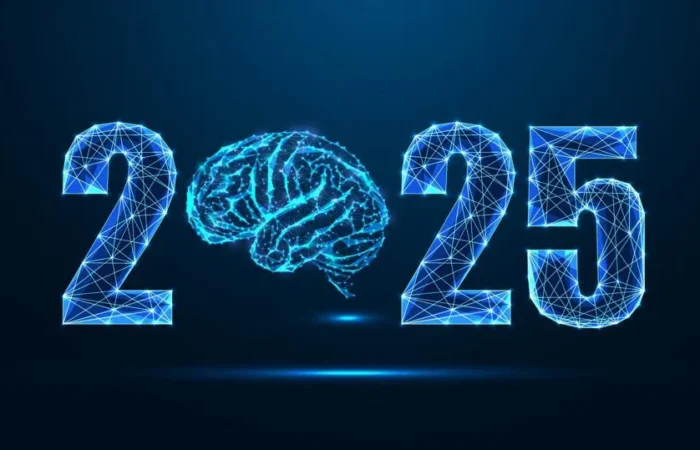
Imagine cutting down 91% of your workload—without hiring extra hands.
Sounds like a dream, right?
OpenAI’s Agents SDK is here to make that a reality.
This new tool is designed to help developers build AI-powered agents that handle:
- AI automation for repetitive tasks
- AI workflow automation tools to streamline operations
- Seamless integration with different platforms using the OpenAI agentic framework
The best part?
It’s built on OpenAI’s open-source Swarm projects and works with other AI providers—as long as they follow the chat completion API format.
In this blog, we’ll explain the AI Agent SDK, how it works, and why it’s a game-changer for AI workflow automation.
Let’s dive in!
What is OpenAI Agents SDK?
OpenAI’s Agents SDK is a tool that helps developers build AI-powered agents.
SDK stands for Software Development Kit.
An SDK is a collection of:
- Tools
- Libraries
- Documentation that help developers build applications more easily.
Instead of writing everything from scratch, developers can use an SDK to get pre-built functions and frameworks to speed up development.
In the case of OpenAI’s Agents SDK, it provides a lightweight framework to build AI-powered agents that can automate tasks, use tools, and interact with users—without needing complex coding.
Currently, it’s available in Python, but a JavaScript version may be coming soon.

Think of it as a lightweight starter kit for building smart assistants.
Unlike other heavy, complicated AI frameworks, this one keeps things simple by focusing only on what’s necessary: giving AI the ability to act, use tools, and automate workflows efficiently.
Imagine it like this…
Let’s say you have a toy robot that can do chores for you.
But instead of programming every single action manually, you just give it a toolbox and simple instructions like:
- “If you see dirty dishes, wash them.”
- “If you hear the doorbell, open the door.”
The robot doesn’t need to know everything—it just follows the core instructions and picks the right tool when needed.
That’s exactly how OpenAI’s Agents SDK works.
It gives AI the ability to choose the right tools and act on its own, without needing a super complicated setup.
How does it work?
- You create an AI agent using OpenAI’s SDK.
- You connect it with tools (like databases, APIs, or even other AI models).
- The agent follows instructions and decides which tool to use for each task.
For example, if you set up an agent for customer support, it can:
- Pull answers from a knowledge base.
- Summarize long emails.
- Automatically respond to common questions.
Are There Other Companies Offering This?
Yes! OpenAI isn’t the only one in the game.
Google’s Vertex AI and Anthropic’s Claude AI also offer ways to build AI agents.
The difference?
- Google’s Vertex AI is great for large businesses needing deep AI customization and cloud-based automation.
- Anthropic’s Claude AI focuses on safety and natural conversations, making it a strong choice for chatbot-based automation.
- OpenAI Agents SDK is lightweight, easy to use, and integrates smoothly with other AI tools following the chat completion API format.
Each of these has its strengths, but OpenAI Agent SDK is perfect for those who want a simple yet powerful way to automate tasks without building an entire AI system from scratch.
Why is OpenAI’s AI agents SDK a game-changer?
- Tools:
Your AI can connect with external apps, APIs, and databases to fetch and process information.
- Handoffs:
When AI reaches its limit, it smoothly transfers tasks to a human or another system.
- Guardrails:
Ensures AI follows specific rules, preventing mistakes or unwanted actions.
- Built-in Tracing:
This lets you visualize and debug how your AI is making decisions, making troubleshooting much easier.
- Open Source:
Works with different AI providers, so you’re not stuck with just one (no vendor lock-in).
With these features, the Agents SDK helps businesses automate workflows efficiently.
That’s the power of AI automation—done right.
Key Areas Where OpenAI Agents SDK Automates Work
Ever feel like your workday is packed with repetitive tasks that eat up all your time?
What if you had an AI assistant that could handle most of them for you?
That’s exactly what OpenAI’s Agents SDK does.
It helps businesses and professionals:
- Automate workflows
- Reduce manual effort
- Free up time for high-value tasks.
Let’s dive into how this tool works and where it can save you hours every day.
- Customer Support – AI Agents That Handle Queries 24/7
Imagine you run an e-commerce store.
Everyday, customers ask about:
- Order tracking
- Refunds
- Product details.
Instead of hiring a large support team, you integrate OpenAI’s Agents SDK.
Now, an AI-powered agent instantly responds to customers, pulls order details from your system, and even processes refunds—without human intervention.
How does this impact your business workflow?
It reduces support workload by 80%, leaving only complex cases for human agents.
- Data Processing – Say Goodbye to Manual Data Entry
Let’s say you manage sales reports for a SaaS business.
Normally, you’d spend hours:
- Exporting data
- Cleaning it
- Creating reports.
With the Agents SDK, your AI assistant fetches data from multiple sources, organizes it, and generates structured reports—all while you focus on strategy.
This saves you 10+ hours per week on data-heavy tasks.
- Task Management – Never Miss a Deadline Again
If your daily workflow involves:
- Scheduling meetings
- Setting reminders
- Following up on tasks.
Instead of juggling multiple apps, you could have your own AI assistant that books meetings, sends automated follow-ups, and even summarizes key takeaways from emails or Slack messages.
This removes 90% of scheduling and follow-up tasks from your to-do list, making missed deadlines a thing of the past.
- Content Creation – AI Writes, You Review
If your work revolves around the marketing field, where you need to create:
- Blog posts
- Marketing emails
- Social media updates regularly.
Agent SDK is built for you.
With the Agents SDK, your AI assistant drafts content based on your style, pulls insights from existing documents and even generates SEO-optimized headlines.
Cuts content creation time in half, so you can focus on strategy instead of wasting time choosing the perfect synonym for a repetitive word (we’ve all been there!)
- Code Assistance – AI That Debugs and Writes Code for You
As a developer, you often spend time debugging errors and writing repetitive scripts.
With Agents SDK, your AI assistant now:
- Detects code issues
- Suggests fixes
- Even writes boilerplate code based on simple prompts.
Reduces debugging time by 70%, letting you build faster and stress less.
With OpenAI’s Agents SDK, you can automate up to 90% of your work, freeing up hours every day.
That’s time you can use to focus on strategy, innovation, or finally doing that thing you’ve been putting off.
The best part? You don’t need to be a tech expert to use it—just start small, integrate it into your workflow, and watch your productivity skyrocket.
Real-Life Use Cases of Agent SDK
AI sounds cool, but how are companies actually using it?
Let’s look at some real-world examples of how businesses are leveraging OpenAI’s Agents SDK to automate work and simplify operations.
- Coinbase – AI That Handles Crypto Transactions:
Before using the Agents SDK, Coinbase had to manually connect AI with their crypto wallet tools—a slow and complex process.
With AI Agents SDK, they built AgentKit in just a few hours.
Now, AI-powered agents seamlessly interact with crypto wallets and on-chain activities.
Developers can add new AI-driven actions quickly, without dealing with messy integrations.
What changed?
- Faster development
- Smoother crypto transactions
- AI-powered financial automation.
That’s how Coinbase Agent SDK worked wonders for it.
- Box – AI That Finds the Right Data Instantly:
Businesses using Box struggled to search through huge amounts of unstructured data:
- Documents
- Emails
- Reports
- Even web sources.
With the Agents SDK, Box created AI-powered agents that can pull insights from both internal and public sources while keeping security intact.
Now, financial analysts or any other research professional can instantly access market insights by combining real-time news with internal reports, saving hours of manual research.
What changed?
AI now finds the right data in seconds, boosting productivity and decision-making.
These companies didn’t just add AI for the sake of it—they used the Agents SDK to eliminate repetitive work and get results faster.
And the best part?
You can do the same.
Whether it’s handling customer queries, automating reports, or streamlining workflows, AI agents can take over the heavy lifting—so you can focus on what actually matters.
It’s time you work smarter and not harder.
What does the internet have to say on OpenAI Agents SDK?
The launch of OpenAI’s Agents SDK has sparked much discussion among developers. Some are excited about the new capabilities, while others weigh the trade-offs.
Here’s what they have to say:
Developers love that it’s open-source and plays nice with different models and tracing providers—no vendor lock-in worries here.
It’s also simple and lightweight, cutting through the complexity of heavier frameworks like LangChain.
The built-in Responses API and vector storage are a game-changer, making RAG workflows way easier by handling chunking and embedding behind the scenes.
That said, not everyone’s sold on all the features.
Some feel that guardrails and handoffs add unnecessary overhead.
While it’s great for smaller AI projects, those building more advanced, multi-modal systems might still prefer their custom RAG setups with external vector databases.
The Verdict?
The OpenAI Agents SDK is a step in the right direction—offering a balance between simplicity and flexibility.
While some developers wish for even more openness, most agree that it’s a solid tool for building, scaling, and optimizing AI agents.
Conclusion
At the end of the day, OpenAI’s Agents SDK is a game-changer in AI automation.
By automating up to 90% of tasks, it strips away the complexities of AI development, making it easier to build and scale AI-powered agents.
No more battling with endless abstractions or reinventing the wheel—just a streamlined AI workflow automation tool to create powerful, intelligent processes.
And this is just the beginning.
As the ecosystem evolves, you can expect even greater flexibility, better integrations, and smarter automation powered by the OpenAI agentic framework.
Whether it’s:
- Deeper multimodal capabilities
- Improved orchestration
- Seamless compatibility with external vector databases.
The future of AI marketing automation and AI workflow automation looks promising.
If you want to stay ahead of the curve, now’s the time to explore what the AI Agent SDK can do for your business.
Give it a try—you might be surprised at how much time and effort it saves.
Subscribe To Get Update Latest Blog Post









Leave Your Comment: